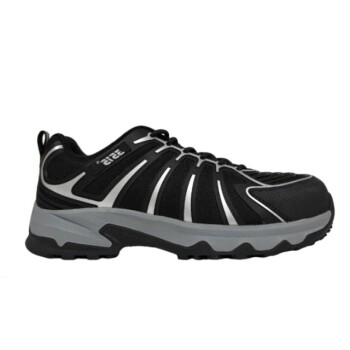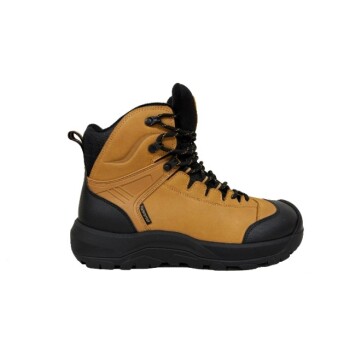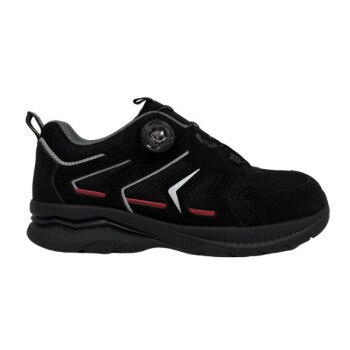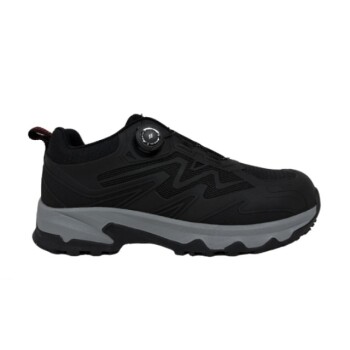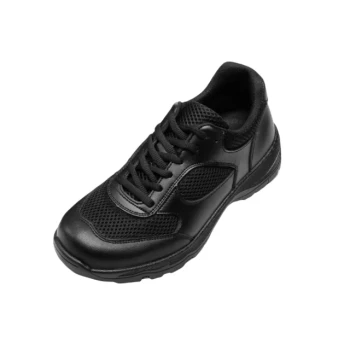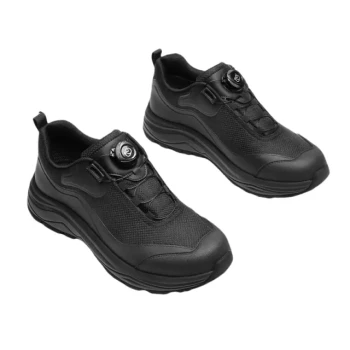For exceptional chemical resistance in footwear soles, the primary materials to consider are Nitrile Rubber, Polyurethane (PU), and Neoprene. These three materials are specifically engineered to withstand degradation from a wide range of chemicals, oils, and other hazardous substances common in industrial environments.
Choosing the right sole is not just about picking a material, but about matching that material's specific resistance profile to the unique chemical hazards present in your workplace.
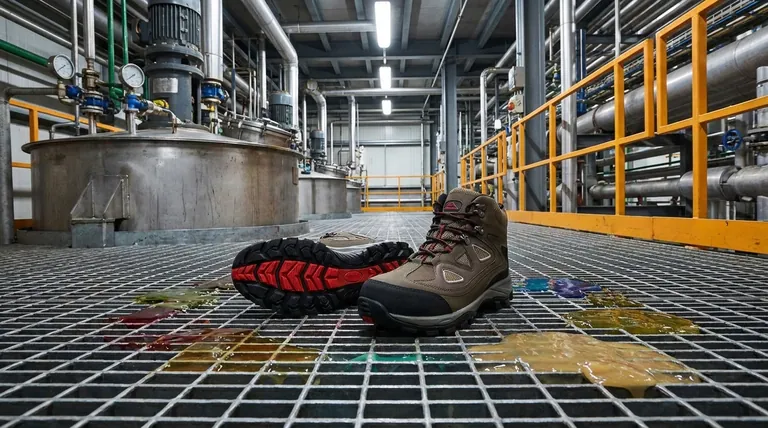
Unpacking the Top Performers in Chemical Resistance
While several materials offer some level of protection, a few stand out for their reliability and specific protective qualities. Understanding their individual strengths is key to making an informed decision.
Nitrile Rubber: The All-Rounder
Nitrile rubber is a synthetic rubber copolymer known for its exceptional durability. It provides robust resistance against a broad spectrum of substances.
Its key strength lies in its performance against oils, fuels, animal fats, and many common industrial chemicals. This makes it a highly reliable and popular choice for general-purpose safety footwear in demanding settings.
Polyurethane (PU): The Lightweight Protector
Polyurethane is a polymer prized for its unique combination of toughness and flexibility. It delivers excellent resistance to chemicals and oils.
Beyond its chemical resilience, PU's main advantage is that it is lightweight and offers superior cushioning. This significantly reduces foot fatigue during long work shifts without compromising on protection.
Neoprene: The Specialized Defender
Neoprene is another synthetic rubber that offers a versatile defense against a wide array of hazards. It is highly resistant to many chemicals and oils.
It also performs well against temperature extremes and resists damage from flexing and abrasion. This combination of properties makes it a premium choice for highly specialized and multi-hazard environments.
Understanding the Key Trade-offs
No single sole material is universally perfect. The term "chemical resistance" is broad, and the best choice depends entirely on the specific substances you will encounter.
Specificity is Paramount
A material that is highly resistant to acids may not perform well against certain solvents. Always consult the Safety Data Sheet (SDS) for the chemicals in your workplace and cross-reference it with the footwear manufacturer's resistance chart.
Balancing Protection and Comfort
While Nitrile offers rugged durability, Polyurethane provides a significant advantage in weight and comfort. For workers who are on their feet all day, the ergonomic benefits of a lighter PU sole can be a critical factor in reducing strain and fatigue.
Cost vs. Performance
High-performance materials like Neoprene, which offer a wide range of protections, often come at a higher price point. Your decision should balance the need for specialized protection against budgetary constraints and the specific, most probable risks of the job.
Making the Right Choice for Your Environment
Your final decision should be guided by a clear understanding of your workplace hazards and daily operational needs.
- If your primary focus is broad, rugged protection against oils, fats, and common chemicals: Nitrile Rubber is your most reliable and durable choice.
- If your primary focus is all-day comfort and reduced fatigue in environments with moderate chemical exposure: Polyurethane (PU) offers the best balance of lightweight ergonomics and solid protection.
- If your primary focus is versatile resistance to a wide spectrum of chemicals, oils, and other hazards like heat: Neoprene provides a high-performance, specialized solution for multi-risk environments.
Ultimately, selecting the correct sole material is a critical investment in personal safety and workplace effectiveness.
Summary Table:
| Material | Key Chemical Resistance | Best For | Key Advantage |
|---|---|---|---|
| Nitrile Rubber | Oils, fuels, animal fats, common industrial chemicals | Rugged, all-around protection in demanding settings | Exceptional durability and broad-spectrum resistance |
| Polyurethane (PU) | Chemicals and oils | All-day comfort with moderate chemical exposure | Lightweight with superior cushioning to reduce fatigue |
| Neoprene | Wide array of chemicals, oils, temperature extremes | Specialized, multi-hazard environments | Versatile resistance to chemicals, heat, and abrasion |
Need Safety Footwear with the Right Chemical-Resistant Soles?
As a large-scale manufacturer, 3515 produces a comprehensive range of industrial footwear for distributors, brand owners, and bulk clients. Our production capabilities encompass all types of safety shoes and boots, ensuring you get the precise protection your workforce needs.
We can help you:
- Select the optimal sole material (Nitrile, PU, Neoprene) based on your specific chemical hazards.
- Source durable, comfortable, and compliant safety footwear in bulk quantities.
- Customize solutions for your unique operational requirements.
Protect your team with the right foundation. Contact our experts today for a consultation and quotation!
Get Your Custom Footwear Solution Now
Visual Guide
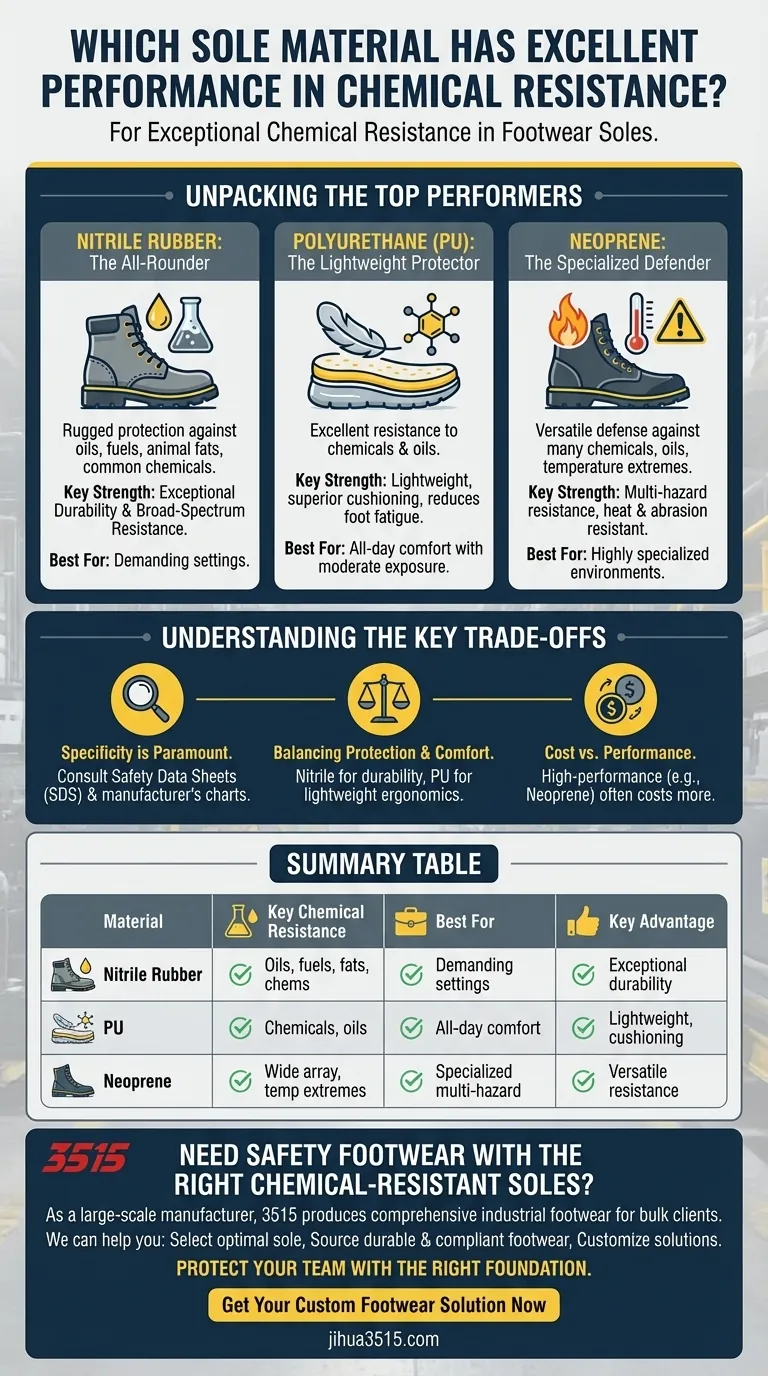
Related Products
- Safety Footwear Wholesale Manufacturer for Custom OEM/ODM Production
- Durable Rubber-Soled Utility Shoes for Wholesale & Custom Brand Manufacturing
- Premium KPU Athletic Safety Shoes for Wholesale
- Premium Flame-Retardant Waterproof Safety Boots and Shoes
- Premium Insulated Safety Boots and Shoes for Wholesale & Bulk Orders
People Also Ask
- What are the cultural perspectives on wearing shoes in the house? A Guide to Home Etiquette & Hygiene
- What cultural and environmental considerations are tied to wearing shoes indoors? Balance Hygiene, Tradition, and Foot Health
- Is safety-toe as good as steel toe? Choose the Right Protection for Your Job
- Is it normal to wear shoes in the house? A Guide to Hygiene, Comfort & Culture
- What are the differences between steel toe, composite toe, and alloy toe Wellington boots? Choose the Right Safety Toe for Your Job


